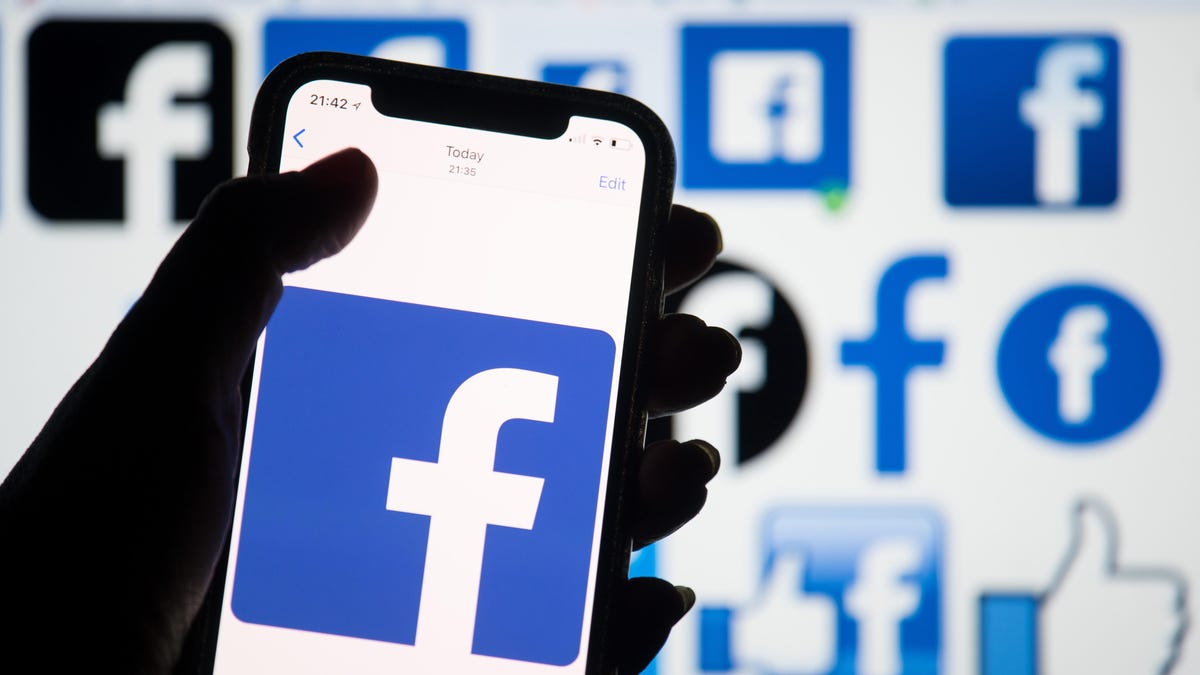Twitter lights up with strong reactions to leaked Facebook memo
"The Ugly," a memo written by Facebook hardware chief Andrew "Boz" Bosworth, highlights a growth-at-any-cost attitude.

Facebook once again finds itself at the center of a controversy.
Facebook has taken a lot of heat after news broke earlier this month that a data analytics firm allegedly misused information from the social network in the 2016 presidential campaign. Now, it's feeling the flames for a leaked memo that appears to champion a culture of aggressive growth.
The memo, penned by executive Andrew "Boz" Bosworth in 2016, puts a premium on getting people to sign up for and use the social network, even if Facebook inadvertently exposes them to bullying or connects terrorists. The memo even had a grim title: "The Ugly."
"Maybe it costs a life by exposing someone to bullies. Maybe someone dies in a terrorist attack coordinated on our tools," wrote Bosworth, who runs Facebook's hardware business. "And still we connect people. The ugly truth is that we believe in connecting people so deeply that anything that allows us to connect more people more often is *de facto* good."
Bosworth acknowledged the memo in a series of tweets on Thursday, saying it was meant to stir debate and be "provocative." In the wake of the data scandal, which involved UK consultancy firm Cambridge Analytica and may land CEO Mark Zuckerberg in front of Congress, it did just that.
Unsurprisingly, Boz's defenders and critics took to Twitter to express themselves.
Antonio García Martínez, who formerly worked with Bosworth, said whoever dug up the memo "stripped it of context." He also lamented the impact the churning news would have on Facebook employees.
The one lasting piece of damage this election debacle will inflict on Facebook isn’t potential regulation or loss of user trust (the company has faced that before), it’s the crumbling of internal morale and unity of purpose, which got the company to where it is today.
— Antonio García Martínez (@antoniogm) March 30, 2018
In a Twitter exchange, Adam Mosseri, who runs Facebook's News Feed, warned against generalizations of the company's employees. He said Facebook is "composed of many people, some more grounded and some less, and all capable of making mistakes or saying something stupid ... most of us are just trying to do right."
I believe that. As a leader I need to focus my team on making News Feed better – making it more relevant, reducing false news, identifying high quality news and even working out how to be more transparent. All that is in the interest the people who use the product.
— Adam Mosseri (@mosseri) March 30, 2018
Former chief software architect at Microsoft Ray Ozzie sent out a cautionary tweet about leaked memos, which Bosworth retweeted:
In early 90's, in prep for an internal Lotus wargaming offsite, I wrote a "fake memo" from billg to his troops, laying out strategy/actions to blunt Notes momentum.
— ray ozzie (@rozzie) March 30, 2018
Someone thought it was real.
It leaked.
Provocative memos are essential mgmt tools, but you need to be careful.
Steven Sinofsky, former president of the Windows Division at Microsoft and board partner at a16z, said he'd once feared he'd face the same situation:
I had a constant fear that memos like that I had written would leak—Borland, Lotus, Netscape, Adobe, Apple, Google and more. Phew dodged a bullet there.
— Steven Sinofsky ॐ 🧘🏻♂️ (@stevesi) March 30, 2018
If anyone wants to read a great one check out “Autodesk Files” with one by John Walker on if Microsoft entered CAD. https://t.co/Uzt1mT2gqc
Chris Messina, a former employee at Uber and Google, chimed in, saying in part: "These issues aren't going away any time soon and there are way worse actors in the world than Facebook."
There are meaningful debates to be had about access and use of our data and the power and control we should have over it... but we also need resilient institutions that are responsive to us in ways that governments are not.
— Chris Messina // molly.com/chris (@chrismessina) March 30, 2018
David Heinemeier Hansson, creator of Ruby on Rails, took a break from his "hiatus" to share his thoughts. In a Tweet, he used the hashtag #DeleteFacebook, which has been making the rounds on Twitter following the Cambridge Analytica scandal:
Imma get back to my hiatus, but I just want to say bwahahahaha 😂🤣. When your corporate memo heralding Growth Uber Alles is made public and your defense is "I was just playing yo". Holy fuck what a hive of thieves and liers. #DeleteFacebook https://t.co/fPts0znj9D
— DHH (@dhh) March 30, 2018
Brianna Wu, who co-founded indie game development studio Giant Spacekat, says Facebook doesn't "see the danger of their product."
Facebook employees are furious at the leaked memo, where an executive pointed out their “growth at all costs” strategy had the potential to cost lives.
— Brianna Wu (@Spacekatgal) March 30, 2018
This is why I believe Facebook cannot self regulate. They can’t see the danger of their product, just like gun manufacturers. https://t.co/xhYd0VVvFl
US Sen. Ed Markey of Massachusetts said when Facebook fails its "moral obligation to maintain the integrity and safety of their platform," it's up to Congress to act:
Death from bullying cannot be the cost of doing business.
— Ed Markey (@SenMarkey) March 30, 2018
Terrorist attacks cannot be the cost of doing business.
It is @facebook’s moral obligation to maintain the integrity and safety of their platform. When they fail to do so, Congress must act.https://t.co/Ui12vPvyr6



